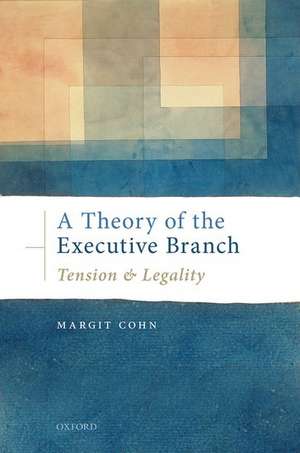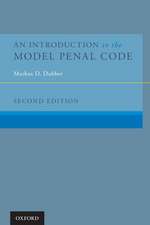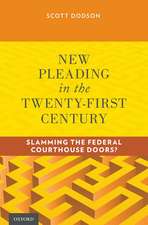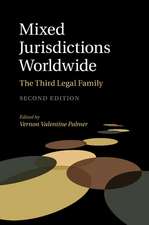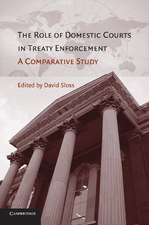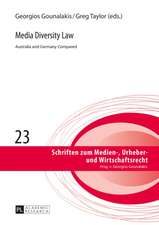A Theory of the Executive Branch: Tension and Legality
Autor Margit Cohnen Limba Engleză Hardback – 24 feb 2021
Preț: 615.90 lei
Preț vechi: 826.35 lei
-25% Nou
Puncte Express: 924
Preț estimativ în valută:
117.87€ • 127.99$ • 99.01£
117.87€ • 127.99$ • 99.01£
Carte disponibilă
Livrare economică 22-28 martie
Preluare comenzi: 021 569.72.76
Specificații
ISBN-13: 9780198821984
ISBN-10: 0198821980
Pagini: 352
Dimensiuni: 165 x 245 x 25 mm
Greutate: 0.68 kg
Editura: OUP OXFORD
Colecția OUP Oxford
Locul publicării:Oxford, United Kingdom
ISBN-10: 0198821980
Pagini: 352
Dimensiuni: 165 x 245 x 25 mm
Greutate: 0.68 kg
Editura: OUP OXFORD
Colecția OUP Oxford
Locul publicării:Oxford, United Kingdom
Recenzii
This book is a well-researched and structured warning that the fuzziness of the law is open to exploitation and realpolitik by governments.
The executive is central to political ordering in all states. There is nonetheless continuing contestation as to the definition of the executive, its power, and its relationship to other branches of government. Margit Cohn has developed a challenging thesis that addresses these central issues from a comparative perspective. It will be of real interest to lawyers, political scientists, and political philosophers.
The concept of executive power, the structures through which it is exercised, and the framework of law and practice by which it is constrained are among the most complex topics in comparative constitutional law. This important book by Margit Cohn offers a framework for understanding and analysis, drawing on a challenging comparison between the United Kingdom and the United States. Cohn brings her argument down to earth through two highly topical case studies, on emergency powers and air pollution. This is a valuable addition to the literature, which will attract close attention from others venturing into the field of executive power.
Theory of the Executive Branch....Cohn offers us a more descriptive account centred around the novel concept of fuzzy legality, but it is also more critical of the growth of the administrative state and reflects a scepticism towards providing the executive with too much discretion.
The executive is central to political ordering in all states. There is nonetheless continuing contestation as to the definition of the executive, its power, and its relationship to other branches of government. Margit Cohn has developed a challenging thesis that addresses these central issues from a comparative perspective. It will be of real interest to lawyers, political scientists, and political philosophers.
The concept of executive power, the structures through which it is exercised, and the framework of law and practice by which it is constrained are among the most complex topics in comparative constitutional law. This important book by Margit Cohn offers a framework for understanding and analysis, drawing on a challenging comparison between the United Kingdom and the United States. Cohn brings her argument down to earth through two highly topical case studies, on emergency powers and air pollution. This is a valuable addition to the literature, which will attract close attention from others venturing into the field of executive power.
Theory of the Executive Branch....Cohn offers us a more descriptive account centred around the novel concept of fuzzy legality, but it is also more critical of the growth of the administrative state and reflects a scepticism towards providing the executive with too much discretion.
Notă biografică
Margit Cohn is the Henry J. and Fannie Harkavy Chair in Comparative Law at the Faculty of Law of the Hebrew University of Jerusalem. Professor Cohn's teaching and research interests span administrative law, comparative public law, constitutional theory, law and politics, law and society, legal cultures, and judicial review.
